2020 End-of-Year Faculty Reading and Podcast List
Ralph Richard Banks, BA/MA ’87, Jackson Eli Reynolds Professor of Law, recommends Heavy by Kiese Laymon and The Tyranny of Merit by Michael Sandel
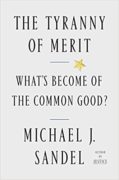
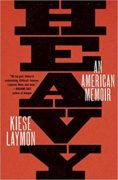
“Kiese Laymon’s book Heavy is a marvelous memoir of his growing up as a fat black boy in Mississippi, who, improbably, becomes a college professor. As with the best memoirs, this one is distinctive in the author’s honesty and insight into both his own life and the broader forces that shape it.
“Michael Sandel’s The Tyranny of Merit is a thoughtful meditation on the costs, social and individual, of the widely accepted practice of allocating opportunities to the highest achieving applicants,” says Banks.
Rabia Belt, Associate Professor, recommends Disability Visibility, edited by Alice Wong
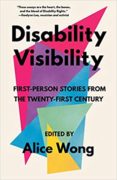
“Alice Wong is affectionately known as the mayor of the online disability community. This Bay-Area resident created and directs The Disability Visibility Project, an invaluable online site for media, essays, and interviews. She recently edited Disability Visibility, a compilation of first-person stories from an array of disabled people. While some of the contributors, such as the late Harriet McBryde Johnson or Haben Girma, are published writers or well known, many others are not. These are voices that are marginalized in popular culture, yet they are celebrated in this volume,” says Belt.
Paul Brest, Professor of Law, Emeritus, recommends Reimagining Capitalism in a World on Fire by Rebecca Henderson
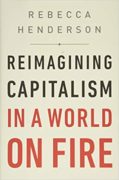
“Reimagining Capitalism in a World on Fire, by Harvard Business School professor Rebecca Henderson, is a very readable and sensible prescription for changes in the behavior of corporations, investors, and regulators to move beyond the neoliberal model of shareholder primacy to corporate responsibility for a broad range of stakeholders and to the planet itself. The book is replete with real-life case studies. It is optimistic without being utopian, though it suffers from the typical business book syndrome of having almost only success stories in a domain where there are many failures as well,” says Brest.
Lawrence Friedman, Marion Rice Kirkwood Professor of Law, recommends Pox: An American History by Michael Willrich, The Poison Squad by Deborah Blum, Miss Marjoribanks and The Perpetual Curate by Margaret Oliphant
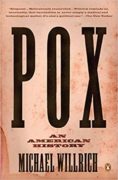
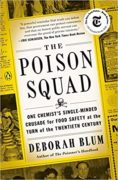
“With so much interest now on the virus, I’d like to recommend two books on medical history I’ve enjoyed: Pox, An American History by Michael Willrich and The Poison Squad by Deborah Blum.
“I’m still a fan of Victorian literature, and still pushing Anthony Trollope. There’s also been a minor revival of a novelist named Margaret Oliphant. For people who like Victorian novels, some of hers are now available (she wrote over 100 novels!). Miss Marjoribanks is the name of one which has been reprinted; another is The Perpetual Curate. Maybe this is a minority taste, but I enjoyed these books,” says Friedman.
Hank Greely, Deane F. and Kate Edelman Johnson Professor of Law, BA ’74, recommends East of Eden by John Steinbeck, Crossing to Safety by Wallace Stegner, News of the World by Paulette Jiles, The Ice at the End of the World by Jon Gertner, and the podcast Revolutions
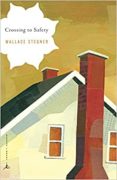
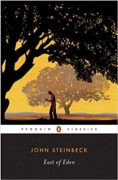
“Since the summer I’ve read, or, mainly, listened while obsessively walking, to many books. Here are four books and a long form podcast series I recommend highly: three novels and two non-fiction works.
“The novels are (in order of publication) John Steinbeck’s East of Eden, Wallace Stegner’s Crossing to Safety, and Paulette Jiles’s News of the World.
“I had read East of Eden in my twenties (forty years or so ago) but listening to it again was a revelation. The man was amazing at description: of geology, of botany, of cultures, and of people. A history of the Salinas Valley from around 1880 to 1918, with a (doubled) Cain and Abel story. Extraordinary!
“Stegner seems to me, in some ways, Steinbeck’s successor (and not just because of their shared Stanford connections). This is the “western” writer’s least western book but a deep and moving exploration of two marriages and a friendship.
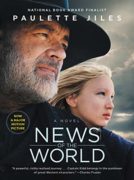
“And the only new novel (2016), News of the World, uses the return of a child stolen by raiding Native Americans as the frame for a powerfully realistic dive into Texas in 1870.
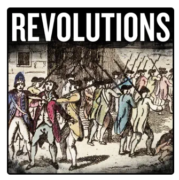
“The non-fiction book is The Ice at the End of the World by New Yorker writer, Jon Gertner. It is about Greenland, and moves, seamlessly, from the adventure stories (often horrific) of the early explorers to the modern scientific research into the world’s largest island’s huge role in climate change.
“And, finally, a podcast, or podcast series: Mike Duncan, Revolutions. So far I’ve listened to about 30 hours of his take on the English Civil War(s) and, the one I especially recommend, 20 episodes (about 14 hours) on the Haitian Revolution, 1791 to 1804. Perhaps not for everyone—Duncan likes details—but, for me, it was a thoroughly engaging immersion into a largely ignored, bloody, sad, but meaningful history. Duncan has an engaging and colloquial style and, if you can ignore the ads at the beginning (for razors or mattresses, mainly), he’s great for fans of popular history. He has podcasts for other revolutions: the American, French (55 episodes, my next), Bolivaran, French in 1830, European in 1848, the Paris Commune, Mexican, and Russian,” says Greely.
Erik Jensen, Professor of the Practice of Law, recommends Modern Indian Poetry In English—The Writers Workshop Selection—An Anthology & A Credo by P. Lal
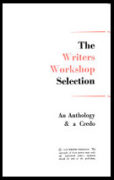
Maybe consider some solace in poetry for the holidays. Here’s an anthology that I’ve turned to over the years. With vaccines in production, one might, for example, turn to Kamala Das’ poem entitled “After The Illness”, one verse of which reads:
There was then no death, no end, but a re-uniting
The weary body settling into accustomed grooves
And, he said, his soft suffering face against my knee
I knew you would survive, my darling, I willed it so
Pamela S. Karlan, Kenneth and Harle Montgomery Professor of Public Interest Law, recommends Why Do We Still Have the Electoral College? by Alex Keyssar and Theft By Finding by David Sedaris
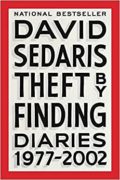
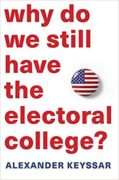
“I recommend Alex Keyssar’s Why Do We Still Have the Electoral College? In some ways, the title tells it all, but this masterful history of the many attempts to reform or abolish the institution will show you why it staggers on, despite the fact that it never fulfilled the role originally meant for it. As with so much else in American law, race has played a huge role.
“Also, David Sedaris’s Theft By Finding. Selections from his diaries, which are sometimes perceptive and sometimes screamingly funny. A perfect book to dip into when you have five minutes or so,” says Karlan.
Mark Kelman, James C. Gaither Professor of Law and Vice Dean, recommends The Topeka School by Ben Lerner
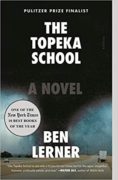
“I am recommending Ben Lerner’s The Topeka School not so much because I am confident it is worth reading as I am confident that I want as many of my colleagues as possible to read it so they can tell me whether they believe it is indeed the dazzling triumph some seem to think or a work that is often more annoying and pretentious than successful. It is generally described as a work of “autofiction” (which is different from an autobiographical novel in ways that are too deep and lit-critty for me to understand) laced with an (un)healthy dose of discursive essays— on the degradation of language and the triumph of Trumpism, on psychoanalysis, on male aggression. The vignettes that seem most conventionally novel-like generally seem fabulous to me—the protagonist confronting the belligerent, entitled New York dad defending his bullying son in the book’s final chapter; the protagonist babbling on, self-involved, without even noticing his bored girlfriend has literally jumped ship (or rowboat) in the book’s first scene; the way his mother silenced the angry male phone callers attacking her pop feminist best seller by pretending not to hear their abusive epithets and asking them to repeat them more clearly. But the playing around with the concepts of Time and Memory and the reflections on toxic masculinity struck me as incredibly banal and self-important, seemed mostly to serve the role of signaling that this is no ordinary old-fashioned novel, when, at its best, I think it is,” says Kelman.
Mark Lemley, William H. Neukom Professor of Law, BA ’88, recommends Stormlight Archive by Brandon Sanderson and video game The Last of Us: Parts I and II

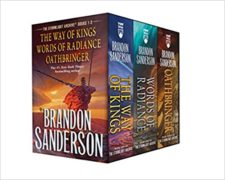
“Brandon Sanderson’s Stormlight Archive. This is the ultimate big-sweep fantasy epic, from the guy who is the current master of the genre. Not for the faint of heart; book 4, just released, weighs in at 1218 pages. But it’s worth losing yourself in this world.
“Also, not sure if you’ll do video games, but just in case: The Last of Us: Parts I and II. Probably the best story-driven video game series ever made. It is emotionally wrenching as well as technically challenging, but no previous video game has ever made you empathize with the characters this much,” says Lemley.
Michael W. McConnell, Richard and Frances Mallery Professor, recommends The Second Sleep by Robert Harris
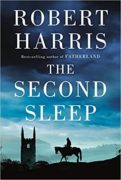
“Robert Harris has long been one of my favorite writers of historical fiction. The Second Sleep starts out in that genre: a priest travels by foot to a village to investigate the death of a controversial local vicar. All seems medieval, until our protagonist stumbles on artifacts from a long-past era, including an iPhone, fragments of electronic circuitry, and the like, collected by the dead vicar and hidden where no one will find out. Then we read parts of the Proceedings and Papers of the Society of Antiquaries—a Society I would love to belong to. The book becomes an exploration into how an advanced society like ours deals with apocalypse, including an uncanny possibility of a deadly pandemic. (The book was written before COVID; I read it in the first month of lock-down.) Alas, the ending is weak. Too action-packed and not cerebral enough. But the book as a whole sticks in the mind. If you want to read about the pandemic without reading about the pandemic, this is the book for you,” says McConnell.
Lisa Larrimore Ouellette, Professor of Law and Justin M. Roach, Jr. Faculty Scholar, recommends David Oshinsky’s Polio: An American Story, Rebecca Makkai’s The Great Believers, and Yaa Gyasi’s new novel, Transcendent Kingdom
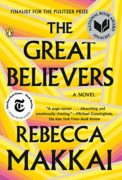
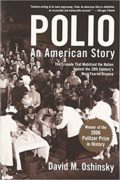
“While studying COVID-19 vaccine development, I enjoyed reading David Oshinsky’s Polio: An American Story, about the intense rivalry between Jonas Salk and Albert Sabin and other players in the race for a polio vaccine. It was a very different time in terms of biomedical funding and regulation, so the polio vaccine story is not a blueprint for future efforts, but it is a fascinating history nonetheless.
“I also loved Rebecca Makkai’s The Great Believers, a novel that jumps between the AIDS crisis in 1980s Chicago and characters who are still processing the aftermath of those losses thirty years later. The novel was critically acclaimed (and deservedly so) when it was released in 2018, but it seems especially poignant as we collectively grapple with the devastating toll of today’s health crisis.
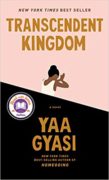
“Finally, I highly recommend Yaa Gyasi’s new novel, Transcendent Kingdom. I recommended her first novel, Homegoing, for last year’s end-of-year reading list, so I started Transcendent Kingdom when it was released in September without reading what it was about. I savored every page of this moving story about a brilliant Ghanaian-American neuroscience PhD student at Stanford grappling with issues including her brother’s opioid addiction, her mother’s depression, and her own faith,” says Ouellette.
A. Mitchell Polinsky, Josephine Scott Crocker Professor of Law and Economics, recommends the audible.com version of True Grit by Charles Portis

“I recently listened to the audible.com version of Charles Portis’ True Grit novel, excellently read by Donna Tartt, the author of Pulitzer Prize winning The Goldfinch. This book, set in the 1870s, is about a 14 year old Arkansas girl’s attempt to avenge the killing of her father. It wonderfully captures the dialect of the times with humor and insight,” says Polinksy.
Robert L. Rabin, A. Calder Mackay Professor of Law, recommends The Splendid and the Vile by Erik Larson
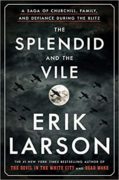
“Erik Larson’s The Splendid and the Vile is an interesting inside look at Winston Churchill and his family coping both politically and personally during Hitler’s siege on London,” says Rabin.
Deborah A. Sivas, Luke W. Cole Professor of Environmental Law, JD ’87, recommends The Color of Law by Richard Rothstein and Caste by Isabel Wilkerson
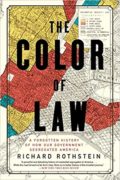
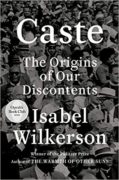
“I spent this summer trying to think about how to incorporate our history of systemic racism, particularly against indigenous people and Black Americans, more explicitly into the work we do in the environmental clinic. Along the way, I read two books that I recommend to anyone interested in approaching these issues from a fresh perspective. The first is Richard Rothstein’s The Color of Law, which explores how government policies very explicitly promoted the private orderings—redlining, blockbusting, restrictive covenants, etc.—that led to de facto segregation of neighborhoods all over the country. The demographic patterns established by these actions persist today and are the root source of many environmental justice issues that still plague clustered communities of color. The second book is Caste by Isabel Wilkerson, which approaches the topic of anti-Black racism through the caste system lens, using India and Nazi Germany as its analytic touchstones. In a country where dialogue over racism often feels stuck, Wilkerson’s attempt to reframe the discussion may help us move forward by focusing on the infrastructure rather than individual behavior. One note: The first short, introductory chapter, which feels like it tries to meet the moment of what has been going on over the past four years, is more overtly political than the rest of the book. If that’s not your cup of tea, don’t be deterred; it is easily skipped to get to the meat of Wilkerson’s interesting historical analysis,” says Sivas.
David Alan Sklansky, Stanley Morrison Professor of Law, recommends Caste: The Origins of Our Discontents, by Isabel Wilkerson, The WEIRDest People in the World: How the West Became Psychologically Peculiar and Particularly Prosperous, by Joseph Henrich, and Hamnet, by Maggie O’Farrell
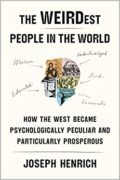

Caste: The Origins of Our Discontents by Isabel Wilkerson—Everyone should read this book. It’s a deeply thoughtful, often searing exploration of slavery, Jim Crow, and everyday racism in America, how our racial caste system resembles and differs from other notorious systems of group oppression, how it has licensed violence and atrocities, and how it continues to ravage American lives. It’s grim and sobering, as it should be, but it’s also surprisingly hopeful. By understanding what we have inherited, Wilkerson suggests, we can begin to confront it, and possibly, in bits and pieces, to rectify it.
The WEIRDest People in the World: How the West Became Psychologically Peculiar and Particularly Prosperous by Joseph Henrich—Henrich argues that the industrial revolution, democracy, the rule of law, Protestantism, and a good deal else about the modern, Western world are accidental outgrowths of the early Catholic Church’s prohibitions on cousin marriage, divorce, and polygamy. He makes a much stronger case for this than you’d imagine. And even if he never convinces you, he has tons of interesting things to say along the way about history, game theory, economics, Eurocentrism, and the interplay between psychology and culture.
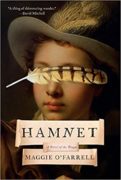
Hamnet by Maggie O’Farrell—This is a historical novel built around the fact that William Shakespeare had a son named Hamnet, about whom very little is known, except that he died at age eleven, possibly from the plague, a few years before Shakespeare wrote Hamlet. Maggie O’Farrell imagines Hamnet’s life and uses it as entry point to imagine the courtship and early marriage of Shakespeare and his wife Anne Hathaway. It’s a smart and quite moving novel about love, loss, family, art, and storytelling.
David M. Studdert, Professor of Medicine (PCOR/CHP) and Professor of Law, recommends The Splendid and the Vile by Erik Larson

“I have been enjoying The Splendid and the Vile. This close-up, day-to-day biography of Winston Churchill is set between May 1940 and May 1941—a time when it looks like Britain may fall. Churchill became Prime Minister at a relatively old age (for the time), after holding high public office for most of his adult life. Britain is under siege; people know him and don’t expect all that much. It unfolds as a story of what national leadership looks like in a time of crisis. Enough said….?” says Studdert.
Barton H. “Buzz” Thompson, Jr., Robert E. Paradise Professor of Natural Resources Law, JD/MBA ’76 (BA ’72), recommends Truman by David McCullough, Freedom From Fear: The American People in Depression and War, 1929-1945 by David M. Kennedy, Inferno: The World at War, 1939-1945 by Max Hastings, and SLS podcast, The Bright Idea
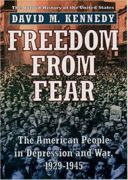
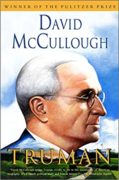
“As I work through biographies of each of the presidents, I occasionally like to pause and read broader histories of the periods in which the presidents held office. This fall, I finished David McCullough’s 1992 biography of President Harry Truman: Truman. McCullough’s Pulitzer Prize winning biography is comprehensive yet incredibly readable, and like all of McCullough’s books, it brings its subject fully alive. Like many biographies, Truman is sometimes too easy on its subject, but does not fail to bring out our 33rd President’s warts. After Truman, I decided that it was time to take a broader look at the Great Depression and World War II. I had never read David Kennedy’s 2000 Pulitzer Prize winning history of the era: Freedom From Fear: The American People in Depression and War, 1929-1945. So I started there and was not disappointed. Kennedy, who is an emeritus history professor at Stanford, is one of the best storytellers around. His book not only provides a stimulating and insightful history of the era, but coincidentally offers one of the best biographies of Franklin D. Roosevelt that I have read. His history is also pleasantly contrary to the accepted wisdom on the presidents of the mid-20th century (Hoover comes off better than expected, Roosevelt and Truman somewhat worse). I have now started a wonderful one-volume history of World War II: Inferno: The World at War, 1939-1945, by Max Hastings (a former war journalist and one of the best war historians alive today).
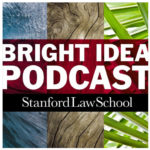
“For your listening pleasure, Stanford Law School recently launched a new podcast called The Bright Idea in which I am interviewing “sustainability entrepreneurs” from around the world, starting with past winners of Stanford Law School’s Bright Award. The podcast, which you can find here, highlights some of the most promising and inspirational work around the world in sustainability and conservation,” says Thompson.
Beth Van Schaack, Leah Kaplan Visiting Professor of Human Rights, recommends The Heart is a Lonely Hunter by Carson McCullers, The Island at the Center of the World by Russell Shorto, and The Life of Peter Van Schaack by Henry Cruger Van Schaack
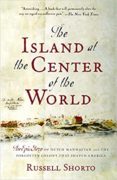
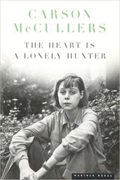
“I just finished The Heart is a Lonely Hunter by Carson McCullers. Written when McCullers was only 23, it is a disquieting and poignant account of race relations, gender roles, and class in 1930s Georgia, made all the more relevant in the context of the Black Lives Matter Movement.
“I am just starting Russell Shorto’s The Island at the Center of the World, a narrative account of the role of the Dutch—including my ancestors—in settling Manhattan. I am following along with The Life of Peter Van Schaack, arguably the most famous Van Schaack (although Lili St. Cyr, née Willis Marie Van Schaack, gives him a run for his money). This book may be of less interest to others, but through Peter’s papers, it recounts his dogged, but ultimately unsuccessful, efforts to avert the American revolution.
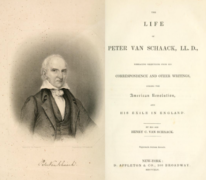
“I have started getting my books here: a consortium of independent booksellers. It’s not as fast as Amazon (who is?), but it supports local bookstores,” says Van Schaack.
